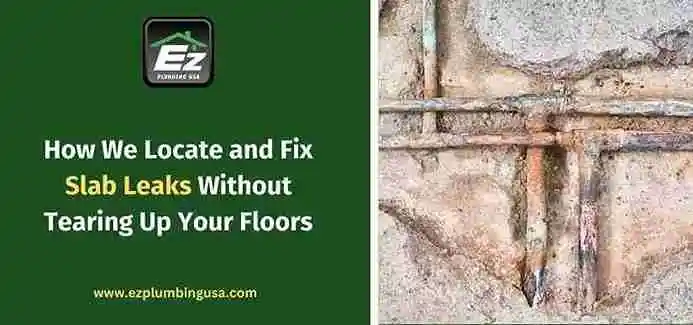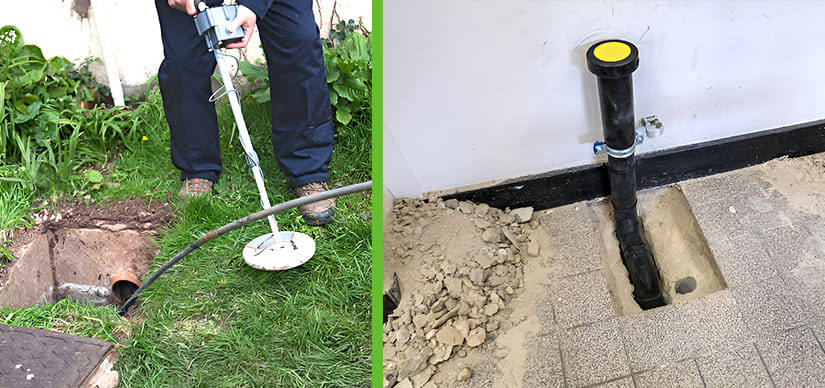How We Locate and Fix Slab Leaks Without Tearing Up Your Floors
Views : 569

What Is Slab Leak? - All You Should Know About It
Signs That You May Have Slab Leakage
- Inexplicable increase in water bills
- Warm spots on the floor
- Sound of running water even with no tap open
- Damp carpets or warped flooring
- Moldy smells or visible mildew
Locating Slab Leaks Under Concrete Without Damage
- Electronic Leak Detection
With the use of advanced acoustic listening devices, we can hear the sound of water escaping from pipes, which allows us to locate slab leaks under concrete very precisely. - Infrared Scanning
Thermal imaging helps to identify the temperature changes which then prove that hot water is leaking under the slab. Most of the time, hot water leaks don't sound like leaking water but they're still causing damage. - Pressure Testing
This method examines the whole plumbing system to pinpoint areas of probable leak location. The result of negative testing will determine the next place to pinpoint.
Trenchless Pipe Repairs: The Future of Slab Leak Repairs
- Pipe Rerouting
If the leak is small and confined, we may just reroute the pipe bypassing the faulty section through walls or ceilings—without touching the foundation. - Pipe Lining (CIPP)
In this process, an epoxy lining is placed inside the existing pipe, which then hardens in place, sealing the leak on the inside. There is no digging, no noise, no mess. - Spot Repair
For large leaks, we may make a small cut through the floor just above the leak. This is done surgically, not destructively. We contain the mess and patch up the floor later.
Why Is the Early Detection of Slab Leaks Important?
The Cost of Slab Leak Repair in San Diego
- Detection Only: $300-600
- Pipe Rerouting: $1,500-4,000
- Epoxy Lining (Trenchless): $2,000-5,000
- Mold Remediation (if water sat too long): $1,000–$5,000
- Complete Repair (only if cutting slab is necessary): $5,000+.
Insurance and Repair of Slab Leaks
Why You Shouldn't DIY Slab Leak Repairs
How We Maintain Your Floors While Doing Repairs
- Dust barriers to protect furniture
- Floor mats and runners to prevent scratches
- Wet vacs and moisture sensors to avoid moisture problems to any affected areas
- Licensed contractors for patching and restoring flooring after
Conclusion
FAQ
Q1. What methods have you got for slab leak detection not requiring floor tearing?
For the precise identification of leaks without causing harm to flooring and walls, we utilize acoustic sensors, infrared cameras, and pressure-testing techniques.
Q2. Will the insurance cover repairs for slab leak?
Insurance may cover the damage resulting from the leak (for instance, the damages to the floor), but is not very likely to cover the plumbing repair itself. Check your policy for more information.
Q3. What causes slab leaks in homes in San Diego?
Corrosion, shifting soils, poor quality installation, and high water pressure, especially in older plumbing systems, are common causes of slab leaks.
Q4. Does your trenchless slab leak repair work for any home?
Trenchless repair works in most cases; however, it depends on pipe location, condition, and type of leak. The inspection will determine the best method.
Q5. Can I repair a slab leak?
Special tools and expertise are necessary for slab leak repair. Trying to fix it yourself might cause more damage and possibly void any insurance coverage. You should leave this to professionals.




